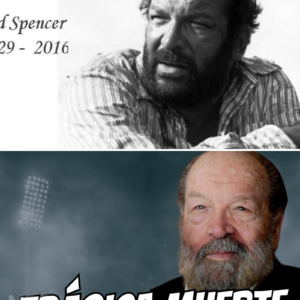Carlos Vives, the renowned Colombian artist, has had a fascinating and multifaceted career that spans over three decades. Known for his influence in bringing traditional Colombian vallenato music to a global audience, Vives has also experienced a journey full of personal challenges and triumphs. Through his evolving career, he has not only impacted the Latin music scene but also left an indelible mark on culture, cinema, and society as a whole.
Born in Santa Marta, Colombia, Vives grew up in an environment deeply influenced by vallenato music. His father, a doctor with a passion for music, had a profound impact on his artistic development. It was through family jam sessions and a life steeped in the sounds of the Caribbean and Colombia’s traditional rhythms that Vives began to hone his musical abilities. His father, who had studied with the famous Colombian musician Rafael Escalona, recognized Vives’ talent early and encouraged his musical pursuits.

Though Vives was not particularly interested in subjects like mathematics, he was very active in the arts during his school years. He participated in his school’s choir and theater group, eventually deciding to follow his passion for music rather than pursue a medical career, as his father had hoped. At 16, Vives wrote his first song as a tribute to the founder of his school, which was well received and marked the beginning of his songwriting journey. This early recognition of his talent helped him gain confidence and propelled him to pursue a professional career in music.
By 1986, Vives had transitioned into acting, securing a role in the Colombian TV series Gallito Ramírez. The series was a pivotal moment in his early career, helping him establish his presence in the Colombian entertainment industry. That same year, he released his debut album, Por Fuera y Por Dentro, produced by Ricardo Acosta. This album set the stage for what would become a long and successful career in both music and acting.
Vives’ career continued to evolve throughout the late 1980s and early 1990s. His acting career expanded with roles in telenovelas such as Tormento in Puerto Rico, where he worked alongside Puerto Rican singer Chayanne. In 1993, after a personal divorce, Vives released the album Clásicos de la Provincia, which included vallenato tracks fused with modern pop and rock influences. This album marked a turning point in his career, cementing his status as an international star. Clásicos de la Provincia not only gained commercial success but also helped reintroduce vallenato to a global audience. The album’s lead single, “La Gota Fría,” was a major hit and is still one of his most iconic songs.
In the years that followed, Vives continued to produce hit after hit, further solidifying his reputation in Latin music. Songs like “La Tierra del Olvido” and “Tengo Fe” from the albums La Tierra del Olvido and Fruta Fresca garnered international acclaim and kept Vives at the forefront of Latin music. His albums consistently achieved platinum status and he became known as one of the most influential Latin musicians of his generation. His ability to blend traditional Colombian sounds with modern pop and rock gave him a unique edge, making his music appealing to both traditional Latin music fans and new generations of listeners.
Vives’ career reached new heights in the 2000s, with a Latin Grammy Award for Best Tropical Contemporary Album in 2004 for El Rock de Mi Pueblo. His later albums, such as Romántico and Clásicos de la Provincia Segundo, continued to cement his place in the Latin music pantheon. His 2012 album Volví marked a significant return to the spotlight, with successful collaborations such as “El Mar de Sus Ojos” with ChocQuibTown and “Cuando Nos Volvamos a Encontrar” with Marc Anthony.
A key moment in Vives’ career came in 2016 when he collaborated with fellow Colombian superstar Shakira on the hit song “La Bicicleta,” which became a global sensation. The song’s success exemplified Vives’ ability to adapt to contemporary trends while still honoring his musical roots. In 2023, Vives continued to dominate the music scene with another successful collaboration, this time with Juanes on the song “Las Mujeres.”
Beyond his music, Carlos Vives has always been committed to preserving Colombian culture and promoting new generations of Latin artists. He has expressed admiration for younger stars like Sebastián Yatra, Camilo, and Maluma, who he sees as representing the perfect blend of modern music and Latin identity. Vives’ influence extends beyond music; he is also known for his dedication to social causes and his passion for Colombian heritage.
In addition to his musical success, Vives has had a deeply personal journey, particularly when it comes to his relationships. His first marriage to Colombian actress Margarita Rosa de Francisco in 1988 was a highly publicized affair. The couple had met while working together on the TV show Gallito Ramírez and quickly became one of Colombia’s most beloved couples. However, after just two years, they separated. In an interview, Vives reflected on the emotional pain of the breakup, admitting that he had loved Margarita deeply, but that she did not feel the same. Despite their divorce, they remained on good terms and spoke fondly of one another in interviews.
Carlos Vives’ story is not just one of musical triumphs but also of personal growth and resilience. His journey through three marriages, each one contributing to his understanding of love and relationships, has played a crucial role in shaping his life and career. Vives’ experiences with his son, who identifies as LGBTQ+, have also been an important part of his personal narrative, demonstrating his commitment to embracing and supporting his family, no matter the challenges they may face.
Today, at 63 years old, Carlos Vives continues to be a vital force in Latin music. He is an artist who is not only respected for his incredible talent but also admired for his dedication to his roots and his ability to inspire future generations. His life and career reflect the power of music to transcend boundaries, connect people, and preserve cultural heritage. With over 30 years of experience, Vives is not just a musical icon but also a symbol of resilience, love, and the enduring power of Latin music.
News
A los 63 años, Javier Alatorre Finalmente admite lo que todos sospechábamos
Javier a la Torre: Los Rumores, la Controversia y las Luchas Personales de un Ícono del Periodismo Mexicano Javier a la Torre, un nombre reconocido en el periodismo mexicano, ha sido una de las figuras más respetadas en los medios…
😥 La trágica muerte de JOAQUÍN PARDAVÉ: secretos revelados ¿Por qué sellaron su ataúd tan rápido?
El 20 de julio de 1955, México vivió una de sus noticias más impactantes. La muerte del actor Joaquín Pardavé, una figura emblemática de la época dorada del cine mexicano, conmovió a toda una nación. Este suceso dejó una marca…
EL LADO de la HISTORIA que NADIE CONTÓ Michael Jackson Biografía y Reflexiones
Michael Jackson, un nombre que resuena en los oídos de todos, es mucho más que un simple ícono de la música pop. A lo largo de su vida, sufrió tanto desde un punto de vista físico como psicológico, y aunque…
😥 La Trágica Muerte De BUD SPENCER El Hombre Detrás Del Ícono, Su Legado y Últimos Días
Carlo Pedersoli, mejor conocido por su nombre artístico Bud Spencer, es una figura que trascendió en la historia del cine, no solo como actor, sino como un símbolo de perseverancia, humildad y dedicación. Nacido en Roma en 1929, su vida…
ASÍ REACCIONÓ ANGELA AGUILAR A LA CELEBRACIÓN POR LA NOMINACIÓN A LOS LATIN GRAMMY DE MAJO AGUILAR
¡Escándalo Familiar! Ángela Aguilar Ignora a Majo en su Nominación a los Latin Grammy: ¿Ruptura Total en la Familia Aguilar? Recientemente, la familia Aguilar ha sido el centro de atención de los medios y las redes sociales, no por un…
¡Cazzu Genera Furia! Internautas Protestan Contra su Nombramiento como ‘Mujer del Año’ Tras el Escándalo con Ángela y Nodal
La petición de Change.org está a punto de alcanzar el mínimo de firmas necesarias Julieta Cazzuchelli ‘Cazzu’, Christian Nodal y Ángela Aguilar continúan envueltos su controversia por su presunto triángulo amoroso tras exponer sus versiones al público. Y es que varios internautas…
End of content
No more pages to load











